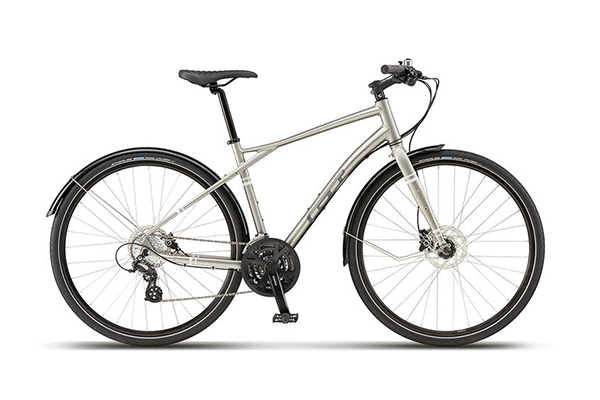Driving in winter conditions requires special attention to safety, and one crucial aspect is choosing the right tires. Winter tires, specifically designed to provide optimal performance in cold weather and snow, are a popular choice for many drivers during the winter season. However, a question often arises: can winter tires be used year-round? In this blog post, we will explore the suitability of using winter tires beyond the winter season, weighing the advantages and drawbacks to help you make an informed decision.
Understanding Winter Tires
To comprehend the implications of using winter tires year-round, it’s essential to understand their purpose and design. Winter tires are constructed with a unique tread pattern and rubber compound that remains flexible in cold temperatures. This flexibility enhances traction on snowy and icy surfaces, allowing for better grip and shorter braking distances. The deeper grooves in the tread pattern also aid in channeling slush and water away from the tire’s contact patch, further improving grip and preventing hydroplaning.
The Differences Between Winter Tires and All-Season Tires
All-season tires are designed to provide adequate performance in various weather conditions, including mild winter conditions. While they offer a balance between summer and winter capabilities, they are not optimized for extreme winter conditions like dedicated winter tires. Winter tires possess superior traction and braking capabilities in snow and ice, providing a significant advantage over all-season tires. The different tread design and rubber compound of winter tires ensure enhanced performance in cold weather, making them the preferred choice for many winter driving scenarios.
Potential Advantages of Using Winter Tires All Year
While it is generally recommended to switch to all-season or summer tires once winter ends, using winter tires year-round can offer some advantages in specific situations.
Extended Tread Life: Since winter tires are often used for a shorter period during the year, they may experience less overall wear. This reduced mileage can result in a longer lifespan for the tires, potentially saving you money in the long run.
Enhanced Safety in Unpredictable Weather: Some regions experience unpredictable weather patterns, even outside the winter season. If your area frequently encounters rain, sudden temperature drops, or occasional snowfall, using winter tires can provide added safety during these unpredictable weather events.
Improved Traction on Wet Roads: Winter tires are designed to excel in slippery conditions, including wet roads. The tread pattern and rubber compound that provide superior performance on snow and ice can also enhance traction on rainy surfaces, reducing the risk of hydroplaning and improving overall control.
Drawbacks of Using Winter Tires Year-Round
While there are potential advantages, using winter tires throughout the year also presents some drawbacks that need to be considered.
Reduced Performance in Warm Weather: Winter tires are optimized for cold temperatures, and as the temperature rises, their performance diminishes. The softer rubber compound can wear more quickly in warmer conditions, resulting in decreased traction, increased braking distances, and compromised handling.
Increased Rolling Resistance and Fuel Consumption: Winter tires have a more aggressive tread pattern, which increases rolling resistance compared to all-season or summer tires. This increased resistance can lead to slightly higher fuel consumption and reduced fuel efficiency.
Wear and Tear on Winter Tire Compounds: Continuous use of winter tires in non-winter conditions can accelerate the wear and tear of their specialized rubber compound. The heat generated during warm weather driving can cause the rubber to deteriorate more quickly, reducing the tire’s overall lifespan and performance.
Best Practices for Using Winter Tires Beyond Winter Season
If you decide to use winter tires all year, it is essential to follow some best practices to ensure safety and maintain tire longevity.
Regular Inspections and Maintenance: Keep a close eye on your winter tires, checking for any signs of wear, bulges, or damage. Regularly inspect the tread depth to ensure it meets the recommended minimum for safe driving. Rotate the tires periodically to promote even wear across all four tires. Additionally, maintain proper tire pressure as recommended by the manufacturer to optimize performance and fuel efficiency.
Adapting Driving Behavior: Adjust your driving habits to account for the limitations of winter tires in warm weather. Increase your following distance to allow for longer braking distances, especially in wet conditions. Avoid aggressive maneuvers that could put excessive stress on the tires, such as hard cornering or sudden acceleration.
Considering Alternative Tire Options: If you live in an area with mixed seasons or experience prolonged periods of warm weather, it may be worth considering alternative tire options. All-season or summer tires are designed to provide optimal performance in warmer conditions, ensuring better grip, handling, and fuel efficiency. Switching to these tires once winter is over can offer a more balanced driving experience throughout the year.
Expert Opinions and Industry Recommendations
When considering the use of winter tires year-round, it’s crucial to gather insights from experts and rely on industry recommendations. Tire manufacturers and automotive experts often provide guidance based on extensive research and testing.
Many experts generally advise against using winter tires beyond the winter season. The specialized design and rubber compound of winter tires are optimized for cold weather, and their performance diminishes in warmer conditions. Additionally, using winter tires year-round may result in accelerated wear and reduced tread life, leading to compromised safety and performance.
Related:
Are All-Season Tires Good for Winter? Evaluating Their Performance in Cold Conditions
FAQs:
Q1: Can I use winter tires in the summer?
A: While it is technically possible to use winter tires in the summer, it is not recommended. Winter tires are specifically designed for cold weather conditions and their performance diminishes as temperatures rise. The softer rubber compound and aggressive tread pattern of winter tires can result in reduced traction, longer braking distances, and compromised handling on dry and hot road surfaces.
Q2: Can I use all-season tires instead of winter tires during the winter season?
A: All-season tires are designed to provide acceptable performance in various weather conditions, including mild winter conditions. However, they are not optimized for extreme winter conditions like dedicated winter tires. If you frequently drive in areas with heavy snowfall or encounter icy roads, it is highly recommended to use winter tires for better traction and safety.
Q3: How long do winter tires typically last?
A: The lifespan of winter tires can vary depending on factors such as driving habits, road conditions, and tire maintenance. On average, winter tires can last for about four to six seasons. However, using them year-round may result in accelerated wear due to the warmer temperatures, reducing their overall lifespan.
Q4: Are there any alternatives to using winter tires year-round?
A: Yes, there are alternatives to using winter tires throughout the year. All-season tires are designed to provide a balance of performance in different weather conditions. They offer decent traction in mild winter conditions while maintaining satisfactory performance in warmer weather. Alternatively, you can consider switching between winter tires and all-season or summer tires based on the specific seasons in your region for optimized performance and safety.
Q5: Can I use winter tires on my rear-wheel-drive vehicle all year?
A: While rear-wheel-drive vehicles may benefit from the enhanced traction provided by winter tires in snowy conditions, using them year-round is not recommended. The reduced performance in warm weather, increased rolling resistance, and accelerated wear and tear on the tires make it advisable to switch to all-season or summer tires once winter ends to ensure balanced performance and safety.
Q6: Can I use winter tires on a vehicle with all-wheel drive (AWD) or four-wheel drive (4WD) all year?
A: While AWD and 4WD systems can enhance overall traction, using winter tires year-round on these vehicles is not recommended. While the drivetrain may distribute power effectively, the tire’s performance in warm weather conditions will still be compromised. It is advisable to switch to all-season or summer tires once the winter season ends to ensure optimal performance and safety.
Conclusion
While winter tires offer superior performance in cold weather and snowy conditions, using them year-round poses some challenges. While there may be advantages in terms of extended tread life and enhanced safety in unpredictable weather, the drawbacks, such as reduced performance in warm weather and increased rolling resistance, need to be carefully considered. Adhering to best practices and expert recommendations can help mitigate these challenges if you choose to use winter tires beyond winter. Ultimately, it is crucial to prioritize safety and make an informed decision based on your specific driving needs and the prevailing weather conditions in your region.




